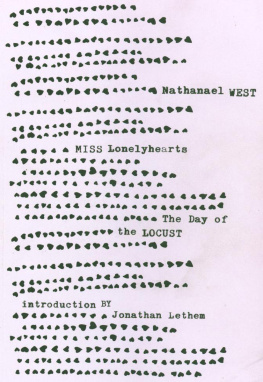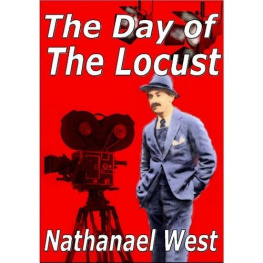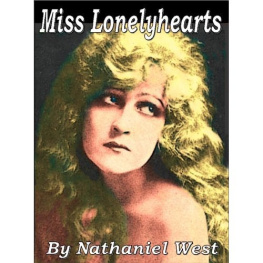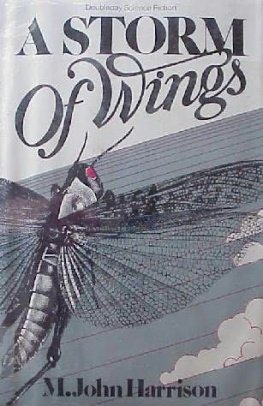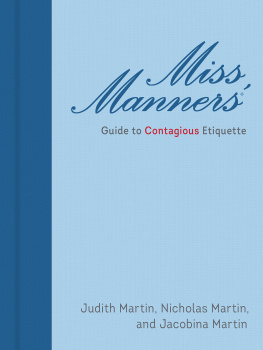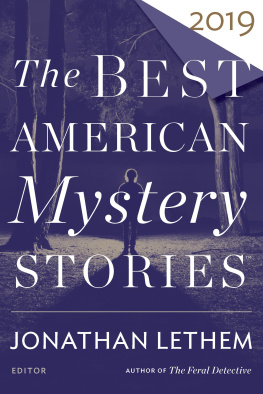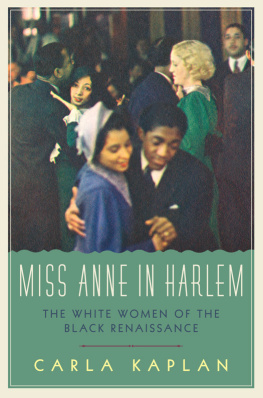Miss Lonelyhearts & The Day of the Locust
Miss Lonelyhearts & The Day of the Locust
NATHANAEL WEST
Introduction by Jonathan Lethem
Afterword by John Sanford

A New Directions Book
Copyright 1933 by Nathanael West
Copyright 1939 by The Estate of Nathanael West
Copyright 1962 by New Directions Publishing Corporation
Copyright 1997 by John Sanford
Copyright 2009 by Jonathan Lethem
All rights reserved. Except for brief passages quoted in a newspaper, magazine, radio, or television review, no part of this book may be reproduced in any form or by any means, electronic or mechanical, including photocopying and recording, or by any information storage and retrieval system, without permission in writing from the Publisher.
John Sanfords afterword appeared originally in the Los Angeles Times Book Review , August 3, 1997.
Manufactured in the United States of America
First published as a New Directions Paperbook ( N D P 125) in 1962. Reset edition 1969
Reissued with a new introduction by Jonathan Lethem and an afterword by John Sanford as a New Directions Paperbook ( N D P 1151) in 2009
Miss Lonelyhearts was first published by New Directions in the New Classics series, 1946.
The Day of the Locust was first published by New Directions in the New Classic series, 1950.
Library of Congress Cataloging-in-Publication Data
West, Nathanael, 19031940.
[Miss Lonelyhearts]
Miss Lonelyhearts & The day of the locust / Nathanael West;
Introduction by Jonathan Lethem; afterword by John Sanford
p. cm.
ISBN 978-0-8112-1822-1 (pbk. : alk. paper)
I. West, Nathanael, 1903-1940. Day of the locust. II. Title.
PS3545.E8334M5 2009
813'.52dc22
2009010505
New Directions Books are published for James Laughlin
by New Directions Publishing Corporation,
80 Eighth Avenue, New York 10011
CONTENTS
The American Vicarious: An Introduction to Miss Lonelyhearts & The Day of the Locust
by Jonathan Lethem
Halfway through Miss Lonelyhearts , Nathanael Wests eponymous protagonist blurts out:
Perhaps I can make you understand. Lets start from the beginning. A man is hired to give advice to the readers of a newspaper. The job is a circulation stunt and the whole staff considers it a joke. He welcomes the job, for it might lead to a gossip column, and anyway hes tired of being a leg man. He too considers the job a joke, but after several months at it, the joke begins to escape him. He sees that the majority of the letters are profoundly humble pleas for moral and spiritual advice, that they are inarticulate expressions of genuine suffering. He also discovers that his correspondents take him seriously. For the first time in his life, he is forced to examine the values by which he lives. This examination shows him that he is the victim of the joke and not its perpetrator.
The passage, so disconcertingly clean and direct that it could remind you of a Hollywood treatment (the mercenary form in which West would come to specialize, a few years later), perhaps represents the book West suspects he ought to have written, or the book he suspects his reader thinks he ought to have written. Thats to say, a coherently tragic narrative grounded, under an urbane, lightly hard-boiled surface, in comprehensible values. The story is the sort that might have been nicely handled by a novelist like Horace McCoy, whose They Shoot Horses, Dont They? might be considered a temperamental cousin to Wests, with its metaphor of the dance marathon forming a lucid indictment of the failure of popular imagination to encompass the Great Depressions dismantling of the American Dream.
Certainly this embodies a part of Wests intention. Lonelyhearts was inspired by access West was given to real letters written to a real advice columnist, and its setting, a persuasively scoured and desperate early-30s Manhattan, is rendered with the scalpel-precision that was Wests prose standard. No doubt, one measure of Nathanael Wests singular value is as a uniquely placed historical witness, a bridge between literary eras. His was a sensibility that extended the Paris-expatriate, Dada-drunk sophistication of 20s literary culture to the material and milieu of Steinbeck, Tom Kromer, Edward Dahlberg, Daniel Fuchs, and other 1930s writers (some explicitly tagged as proletarian)that is, to povertys social depredations, with all the accompanying lowered sights, deluded daydreams, and susceptibility to cults, fads, and games of chance.
Yet hardly anything in this context prepares us as readers for the plunge into the nihilistic, hysterical, grotesque-poetic frieze that is the fifty-eight-page novel we know as Miss Lonelyhearts . For what that inadequate synopsis implies (for the first time in his life he is forced to examine the values) is an approach to depicting fictional characters that West couldnt ratify: psychologically rounded, and capable of making and recognizing a traditional mistake, of making a heros progress through a typical plot, even if it is to be a tragic one. This isnt Wests way. The journalist known to us only as Miss Lonelyhearts, like his antagonist-editor Shrike, indeed, like every human creature he encounters (including those profoundly humble authors of the advice-seeking letters) is a species of chimera, in many ways a mystery to him- or herself. If Wests characters are human, it is only unfortunately so: trapped in a grossly prominent physical form, a creature lusting and suffering in bewildering simultaneity. As far as their values, or personalities , these are glimpsed only fleetingly against a screaming sky full of borrowed and inadequate languages and attitudescommercial, religious, existentialist, therapeutic, criminal.
Wests characters mostly dont engage in conversation. In its place they toss blocks of rhetoric, of elegant mockery or despair, at one another like George Herrimans Ignatz Mouse chucking a brick at Krazy Kats head. The comparison of Lonelyhearts form to a comic strip isnt mine, but Wests, who intuited that for all his grounding in Dostoyevsky and T.S. Eliot he needed to find some version of vernacular form to embody his insight that violence in America is idiomatic. The novels short, sardonically titled chapters persistently end in morbid slapstick and cumulatively take on a slanted, compacted quality, like crashed cars exhibited bumper-to-bumper. Dislodged on the very first page from traditional identification with the travails of Lonelyhearts protagonistin one ear by the horrific chorus of the advice-seeking letters themselves, in the other by the preemptive mockery of Shrikethe reader finds any possibility of redemptive self-pity brilliantly undermined. (A critic explainedor complained: Violence is not only Wests subject, it is his method.) Nathanael Wests masterpiece is a mercilessly unsympathetic novel on the theme of sympathy.
New York is vertical, Los Angeles horizontal, as well as three thousand miles further from any grounding in European historical consciousness. The difference between Wests New York novel and The Day of the Locust , his Hollywood apocalypse, mimics these contrasts of cultural geography and form. Lonelyhearts is defined by stairwells and elevator shafts and basement speakeasies, Locust by the littering of a desert landscape with arbitrary architectural monstrosities, with random and flimsy quotations of varied building styles, whether for use as temporary movie sets or (barely more permanent) dwellings. Lizards scurry across this baked ground. In place of Lonelyhearts claustrophobic compression, in Locust Wests savage attention flits from character to character, leaving more oxygen and sunlight between the tragicomically lumpen human operatorsthough eventually theyll crowd together and swarm this landscape like lemmings. Acutely conscious of the double-edged myths of Progress and Manifest Destiny (the diffident Jew Nathan Wallenstein Weinstein converted himself to the imperially urbane Nathanael West because, he joked, hed heard Horace Greeleys call to go West, young man), West explicitly defines Los Angeles as the place where the American (Egalitarian) Dream has ended up, first to replicate itself in the synesthetic cartoons of the motion picture industry, and then, under the exposing glare of sunlight, to die.

